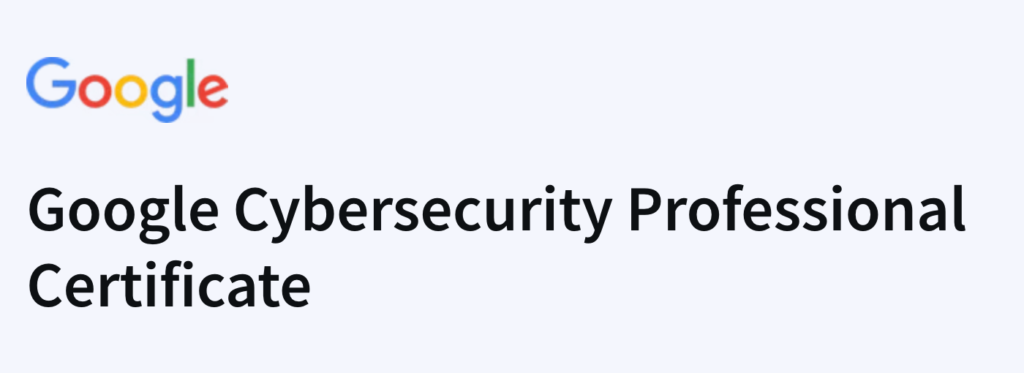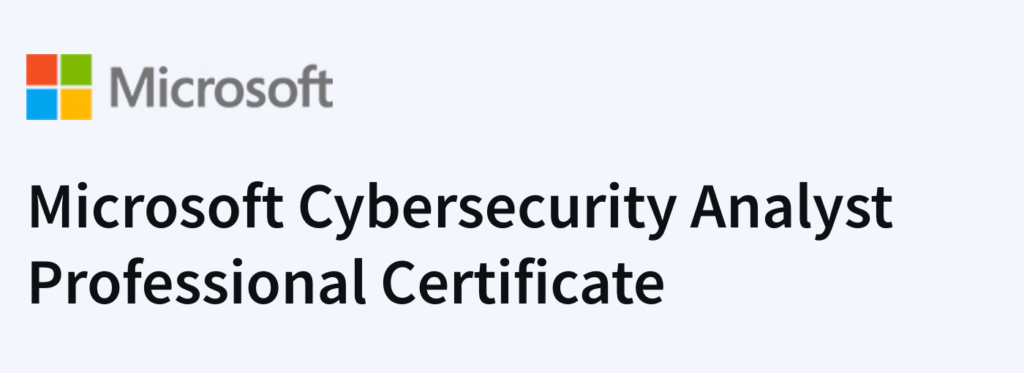As part of my ongoing efforts to build a stronger foundation in cybersecurity, I’ve been exploring Coursera’s collection of cybersecurity-focused courses. I’m hoping to apply what I learn to improve my capabilities and credibility as a cybersecurity writer. However, for most people, the knowledge gained from these courses can already serve as a stepping stone to kick-start a career in cybersecurity or perhaps even land an entry-level cybersecurity job.
I’m currently seeing 200+ related courses on the platform, but I’m focusing on those that lead to professional certificates. Courses with professional certificates offer structured learning paths wherein each course builds on top of a previous one. This approach is usually more effective in getting a firm grasp, especially if you have zero background in the subject you’re attempting to learn.
Not only that, these programs are usually designed by reputable companies like Google, IBM, or Microsoft. Having a cert from a recognized brand can add more credibility to the certificate in question and make a strong impression on potential clients or employers.
If you’re looking for entry-level online programs that award you a professional certificate upon completion, you can check out the following programs on the Coursera platform. All 4 certificate programs outlined below don’t require any related experience or degree, so you can dive right in.
Google Cybersecurity Professional Certificate

Let me start with this one. I gave this program a go earlier this year until I got swamped with other tasks. However, my wife started taking this certificate program several months ago and is finally about to complete it. She’s been sharing her learnings with me, so I’m quite familiar with the lessons found in it. The Google Cybersecurity Certificate program consists of 8 courses:
- Foundations of Cybersecurity
- Play It Safe: Manage Security Risks
- Connect and Protect: Networks and Network Security
- Tools of the Trade: Linux and SQL
- Assets, Threats, and Vulnerabilities
- Sound the Alarm: Detection and Response
- Automate Cybersecurity Tasks with Python
- Put It to Work: Prepare for Cybersecurity Jobs
I taught in a local university for 12 years before shifting to freelance writing, so I know a thing or two about pedagogy and teaching strategies. Based on the information I gathered, the Google Cybersecurity Certificate program applies best practices in teaching. For instance, it incorporates:
- Project-based or problem-based learning
- Group discussions (although, in reality, not many are participating in actual discussions. Most are just submitting comments for compliance, which is required in some portions of the program)
- Varying content (e.g. videos, texts, diagrams)
- Simulations that use actual tools of the trade
- Quizzes
Based on what I know from my 10 years of experience writing for cybersecurity, vendors, firms and service providers, the curriculum is also well-thought-out. It starts with an overview and then dives in to key areas. If you want to learn more about this particular program, you can check out the official Google Cybersecurity Professional Certificate page at Coursera or read this detailed review of Course 1.
Microsoft Cybersecurity Analyst Professional Certificate

A quick scan through this program’s page reveals a nice incentive. Certificate completers get a 50% discount voucher for the Microsoft SC-900 Certification exam. Although it’s an entry-level certification. SC-900 is recognized in the cybersecurity industry. In addition, the program also has a dedicated course that prepares and practices you for the exam, so that’s a big bonus.
The following courses constitute the Microsoft Cybersecurity Analyst Professional Certificate program:
- Introduction to Computers and Operating Systems and Security
- Introduction to Networking and Cloud Computing
- Cybersecurity Threat Vectors and Mitigation
- Cybersecurity Identity and Access Solutions using Azure AD
- Cybersecurity Solutions and Microsoft Defender
- Cybersecurity Tools and Technologies
- Cybersecurity Management and Compliance
- Advanced Cybersecurity Concepts and Capstone Project
- Microsoft SC-900 Exam Preparation and Practice
One thing that stands out from the course outline is the focus on Microsoft-related software. If you prefer a vendor-agnostic learning path, this program might not be for you.
It is however worth noting that the program gives emphasis on regulatory compliance frameworks. The program even has a module dedicated to data security laws and standards like FISMA, NIST, SOX, GDPR, and COBIT.
Familiarity with these standards can open opportunities to not-so-technical areas in cybersecurity. If you lack IT or computer science skills, a solid grasp on these laws and standards can still help you land a job in cybersecurity.
IBM Cybersecurity Analyst Professional Certificate

Consisting of 14 courses, the IBM certificate program has the longest selection of courses on this list. Interestingly, its estimated length of completion is only 4 months. For comparison, the Microsoft cybersecurity certificate program we covered earlier consists of only 9 courses. Despite having fewer courses, the Microsoft program’s estimated length of completion is 6 months.
Both courses gave those estimates based on a 10 hour-per-week study load, so I’m starting to doubt that the IBM program goes deep enough in their courses.
The IBM Cybersecurity Analyst Professional Certificate program consists of the following courses:
- Introduction to Cybersecurity Careers
- Introduction to Cybersecurity Essentials
- Introduction to Cybersecurity Tools & Cyberattacks
- Operating Systems: Overview, Administration, and Security
- Computer Networks and Network Security
- Database Essentials and Vulnerabilities
- Cybersecurity Architecture
- Cybersecurity Compliance Framework, Standards & Regulations
- Penetration Testing, Incident Response and Forensics
- Cyber Threat Intelligence
- Cybersecurity Capstone: Breach Response Case Studies
- IBM Cybersecurity Analyst Assessment
- Generative AI: Boost Your Cybersecurity Career
- Cybersecurity Job Search, Resume, and Interview Prep
That’s a pretty comprehensive selection of topics. The curriculum even covers standards and regulations, which, as I hinted earlier, gives moderately-technical learners a shot at a cybersecurity career. It even tackles relatively new areas like cyber threat intelligence and generative AI, making it more in tune with the times than the other programs.
IBM and ISC2 Cybersecurity Specialist Professional Certificate

Developed jointly by IBM and ISC2, this certificate program takes a different approach compared to the first three programs we covered earlier.
Although the program starts by talking about cybersecurity careers, the succeeding courses (Course 2 to 5) are actually IT-related topics. You don’t encounter cybersecurity-focused lessons until Course 6. While learners with basic computer or IT background might find this program too long-drawn-out, people who lack knowledge in those areas should find those additional courses useful.
If you belong to that second group of learners, you might want to give this program a try. The IBM and ISC2 Cybersecurity Specialist Professional Certificate program consists of the following courses:
- Introduction to Cybersecurity Careers
- Introduction to Hardware and Operating Systems
- Introduction to Software, Programming, and Databases
- Introduction to Networking and Storage
- Introduction to Cloud Computing
- Introduction to Cybersecurity Essentials
- Security Principles
- Incident Response, BC, and DR Concepts
- Access Control Concepts
- Network Security
- Security Operations
- Cybersecurity Capstone: Breach Response Case Studies
Conclusion
Cybersecurity is a broad and rapidly growing industry, offering countless opportunities for people with the right skills. If you want to secure a spot in this field, I encourage you to start learning basic concepts. Better yet, acquire certifications that can add credibility and help you stand out to potential clients or employers. Any of these four certification programs at Coursera can give you the foundational knowledge and credentials to kick-start your cybersecurity career.